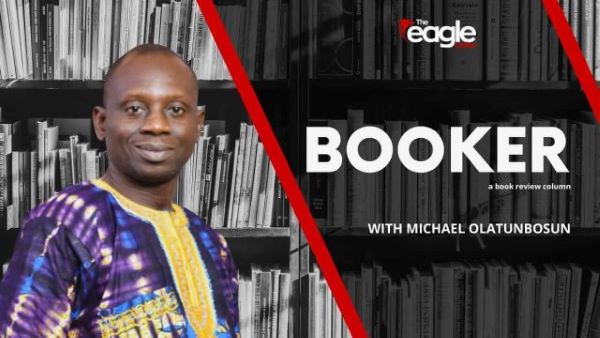The novel: “On the Bank of the River,” written by Ifeoluwapo Adeniyi is a 285-page prose fiction published in 2015 by Panamacchi Books, Ibadan. Ifeoluwapo Adeniyi makes story telling real and also knows how to captivate the reader with her skill with words. This is precisely what she has done with her novel, On the Bank of the River. Ifeoluwapo is currently an Assistant Professor in the Department of English at the University of Winnipeg. She had previously worked as a presenter on Splash FM 105.5, a radio station in Ibadan.
The novel revolves around Enitan, an only child of a hardworking single mother. Set in Obade, a village in Old Oyo state in the mid-70s and spanning about 30 years, the book chronicles the life of young, beautiful Enitan who has to endure the sadistic and tyrannical tendencies of her mother, Asake, a once beautiful toast of the village, in her quest for self-definition and actualisation.
In: “On the Bank of the River,” Enitan’s mother would always tongue-lash her for almost every slip, but genuinely advises Enitan to study hard and not fall prey to the vulture tendencies of boys and men who would use her and dump her, leaving her with bitter consequences. While Enitan appreciates her mother’s care and hard work, she is always agitated by the mystery surrounding her paternity. She continually thinks about why she is tied to a woman who is always doing “male things”, but without a man in her life. She even tries once to ask about her father, but is unsuccessful.
Whenever knotty questions becloud her mind, Enitan would seek solace on the bank of the Obade River with which she strikes a mysterious relationship. But unknown to Enitan, the river at Obade is where the events that define her mother’s destiny and also sow the seed of her very existence.
Enitan grows to love and admire her aunt, Jibike, the only relative she knows apart from her mother. Her aunt is a successful journalist who works for a newspaper in Lagos, and whose life she desires to emulate. Thus Enitan always looks forward to Auntie Jibike’s visits, one of which provokes physical fights between the sisters. This middle-of-the-night scuffle which Enitan barged in to witness further throws up more questions about the past of her mother and aunt, which cause none of the sisters could tell the inquisitive Enitan.
One fateful day, the unthinkable happens. Enitan returns home from visiting Dayo, her best friend and confidant, without knowing that Bayo (Dayo’s twin brother) trails her home and tries to rape her. Asake misreads the situation and beats her daughter angrily. This infuriates the innocent girl to the extent that she goes on hunger strike. She lands in hospital when Auntie Jibike makes a surprising but timely visit. On being discharged from hospital, Enitan insists on not returning home, threatening that she would resume her hunger strike if forced back home.
She finally goes to Lagos with Auntie Jibike. It is at Lagos that some missing pieces of Enitan’s puzzling paternity begin to emerge. With On the Bank of the River, the author has successfully demonstrated her power with words.
The ease with which she delicately deployed the words cannot but captivate the reader and transmit the urgency in the narrative to the reader as well.
The novel, a fast-paced and pulsating account of a conservative Nigerian village with its stark reality of contrasts with city life, also crystallises the helplessness and vulnerability of the average village girl who, in her innocence, gets swept off her feet by the charisma of city people, especially of the male gender, and it attendant consequences. The novel also exposes the somewhat warped idea that the girl child has to stay at home to attend to domestic duties while her brother has to go to school. This turns out to be the case with Dayo, Enitan’s best friend. Dayo’s mother dies of some mysterious illness shortly after giving birth to her last child, and Dayo’s father insists she must stay at home to take care of the baby while her twin brother, who is less brilliant, goes to school.
Also Read:
One other highpoint of the novel is Ifeoluwapo’s adoption of the naive point of view in the treatment of the coming of age of Enitan and Dayo. The reader is helped to a wide-mouthed smile on reading about the first menstrual experience of Dayo. But just as it is usually the case in this nation, sex education is delayed until it almost becomes late.
Ifeoluwapo powerfully reveals the character of the protagonist in this work by allowing the reader intermittent peeps into Enitan’s mind and thought pattern. This she does skillfully by employing the narrative technique referred to as stream of consciousness. This is a technique that many writers happily avoid. But Ifeoluwapo takes the plunge gleefully. And this daring effort marks Ifeoluwapo out.
With this work, the author makes a bold statement which will continue to reverberate in literary circles for a long time. This book comes highly recommended for all categories of readers, and those who have a knack for good writing.
. Olatunbosun is a broadcast journalist, fact-checker and book reviewer at Splash FM 105.5, Ibadan. He can be reached via 08023517565 (SMS and WhatsApp only) and email: miketunbosun74@gmail.com.
Post Views: 2




















Leave a comment